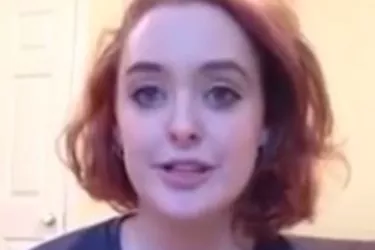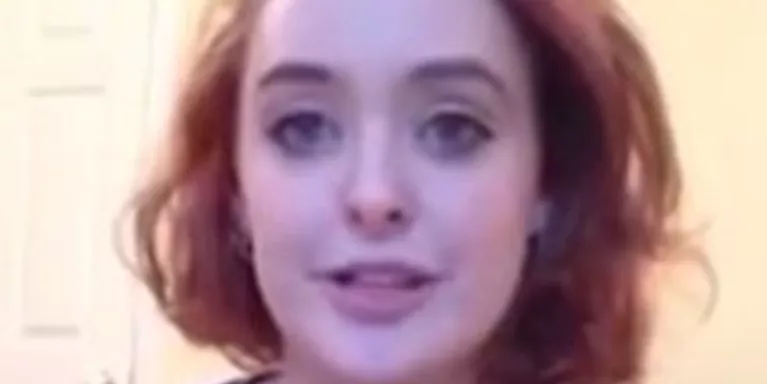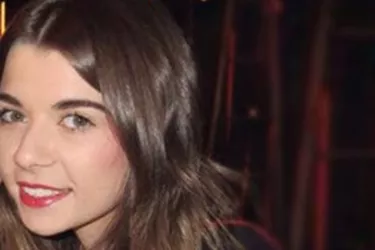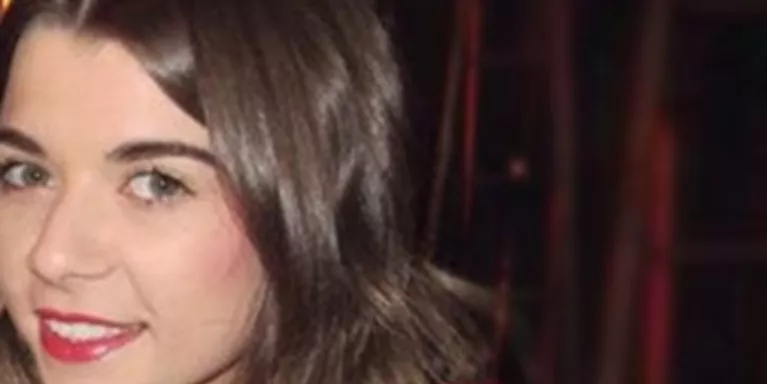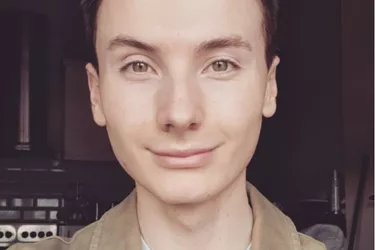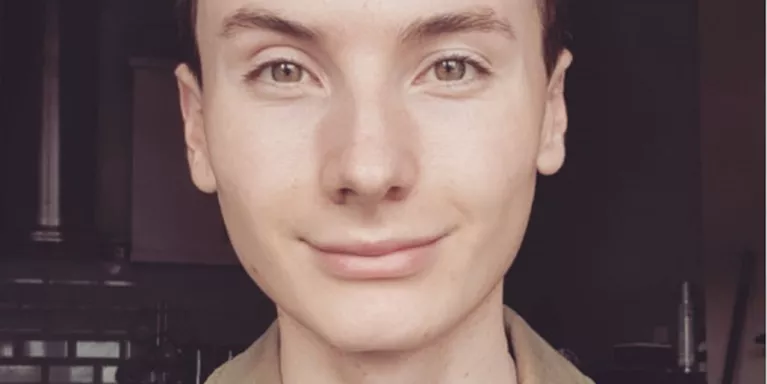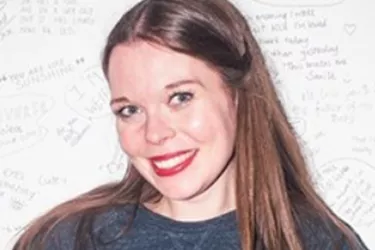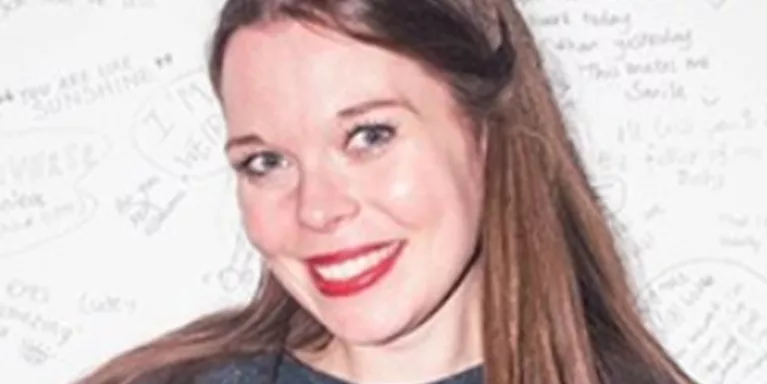My local Mind rescued me in lockdown
This blog discusses eating disorders.
Emily had already been saved once by Mind. As part of our Christmas appeal, she blogs about how she called on her old friends at Guernsey Mind when she found herself re-traumatised by the pandemic.
The pandemic has had a devastating impact on people with eating disorders like me, and the number of people hospitalised because they have lost their community treatment is horrific. Thankfully, my local Mind has been there for me when I’ve needed them – just as they were six years ago when I was at my lowest.
"I was put in the back of a police van, handcuffed and taken into an inpatient unit. I was only 19."
In 2015, I had a severe relapse with my eating disorder, anorexia, and depression, and I made a suicide attempt. As a result, I got sectioned. I was put in the back of a police van, handcuffed and taken into an inpatient unit. I was only 19, the youngest patient in the unit, and I was terrified. Luckily one of the support workers gave me a leaflet for Guernsey Mind and said: “There is this organisation – give them a ring and just have a chat with them.” That changed my life.
I phoned up Guernsey Mind and another Emily, who is the chief exec now, answered the phone. When I explained what happened, she said: “I’m coming to see you in about two hours in the unit.” After that she visited me twice a week, for my whole inpatient admission, and has kept that contact ever since.
Explaining things in a human way
Emily and Mind helped me in all sorts of ways – she’d explain my treatment in a way I could understand rather than the cold technical way doctors describe things. She didn’t judge me, whereas most healthcare experts made me feel I was trouble and had done something terrible. She gave me emotional support, and taught me to be open about my experiences rather than ashamed of it.
When I had relapses and was readmitted to hospital, Emily and Mind were always there for me. I had been living in temporary accommodation, but Guernsey Mind helped to get me supported living, with social services and other healthcare professionals because I also have physical disabilities, to ensure they were all on the same page. Guernsey Mind is a family, and ever since I have been part of that family.
Guernsey Mind helped me develop strategies and skills to cope with my mental health problems. I attended art therapy groups, mindfulness classes and talking therapy groups. All these helped me understand the triggers for my illness and showed me alternatives to self-harming. I was introduced to a strategy called Decider Skills, which helps you work out what skill will work best for you depending on what state you’re in on that particular day. For example, rather than reacting with an eating disorder behaviour or a self-harm behaviour, I would stop and take a breath, draw, write or play my piano.
Guernsey Mind paid for 10 art therapy sessions which have been so helpful. Now if I can’t put feelings into words, I can paint a picture of what makes me feel happy or what are my darkest thoughts.
When I started to feel better I began to volunteer for Guernsey Mind, doing little things like sorting out leaflets and delivering them to people. I also joined the Mind choir. It gave me a focus and a purpose. But then came the pandemic.
We had eight Covid cases at my assisted accommodation, so, they had to lock us down completely. I couldn’t leave my flat for 12 weeks. That was traumatic and triggering because I pretty much lost everything – my routine, my schedule, the people who kept me connected to the world . It took me to a dark place and I got so ill I almost ended up back in hospital. I was a prisoner in my own head., That’s when I phoned Emily at Guernsey Mind and told her I wasn’t coping.
"Within a day of going into lockdown Mind had their services up and running virtually. That provided me with stability."
Although Emily couldn’t come into the flat, she said: “We’re on the end of the phone and we’re not going anywhere.” Within a day of going into lockdown Mind had all their services up and running virtually. That provided me with the stability I needed to keep me afloat.
Before lockdown, the visits from support workers, shopping trips, and activities outside served as my guide to life. But all that went. I began to feel there was no point in getting up so I pretty much went back to bed and shut down from the world.
The disruption to my meal plan was the worst thing. Left to my own devices I spiralled quickly. Again Emily helped me set up an action plan and goals, and we worked out a sensible meal plan.
Before the pandemic, there wasn’t enough NHS mental health provision. Now the problems have got so much worse, and people are suffering in silence for longer as they deteriorate. Waiting times have gone through the roof, which is having a huge impact on the wellbeing of so many people. And that is really heart-breaking.
Back on my feet
For me, things are getting better. Next week I’m going to see friends in Salford – my first trip off the island. Living on an island is beautiful, but you're quite stuck. Throughout the pandemic, we have been even more stuck, even more shut down, because there was just nothing coming in and nothing coming out. So I feel like a butterfly getting its wings back.
But I’m one of the lucky ones. Mind got me back on my feet and has helped teach me how to fly again. And I want it to have enough money to be able to help so many more people like me.
The greatest gift that anyone can give is to save and change a life. Donating to Mind does just that. Your money could mean that you have enabled someone to pick up the phone, support someone in extreme distress, and given them hope that life is worth living. That’s what Guernsey Mind did for me six years ago. And surely nothing can be more valuable than that.
The pandemic has left millions of us with trauma. This Christmas, we’ve got to act. We need to make sure that next year there’s proper mental health support for everyone who needs it. By donating to our Christmas appeal, you could help make that possible.


Information and support
When you’re living with a mental health problem, or supporting someone who is, having access to the right information - about a condition, treatment options, or practical issues - is vital. Visit our information pages to find out more.
Share your story with others
Blogs and stories can show that people with mental health problems are cared about, understood and listened to. We can use it to challenge the status quo and change attitudes.










